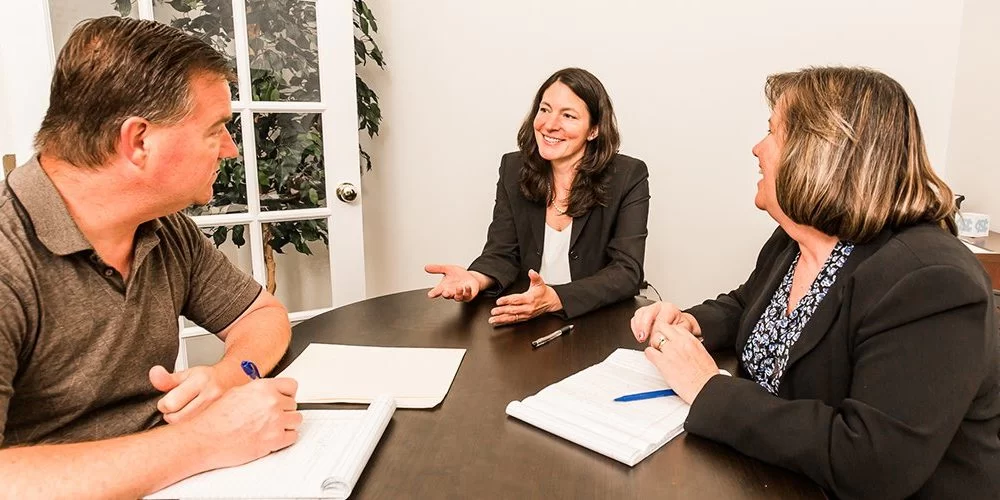- Estate Planning Basics
- Why Legal Assistance is Important
- Key Components of Estate Planning
- How to Find the Right Estate Planning Lawyer
- Common Mistakes in Estate Planning
1. Estate Planning Basics
Estate planning is a crucial process that helps individuals prepare for the future, ensuring that their assets are distributed according to their wishes after death. It involves legal documents such as wills, trusts, and powers of attorney. Estate planning is essential for protecting your loved ones, minimizing taxes, and avoiding potential legal issues. Without proper estate planning, the state may decide how your assets are distributed, which might not align with your preferences.
For anyone in the US, having legal assistance during estate planning can significantly impact the outcome. It ensures all legal requirements are met, and the documents are valid and enforceable. Estate planning is not just about distributing wealth; it’s about securing peace of mind for you and your family.
2. Why Legal Assistance is Important
When it comes to estate planning in the US, legal assistance is invaluable. Estate laws vary from state to state, and navigating the legalities can be complex. A qualified lawyer ensures that your estate plan complies with all relevant laws and regulations. They also help to minimize the risks of future disputes among heirs, which can arise without clear legal documentation.
Legal assistance also provides peace of mind. A professional lawyer will guide you through each step of the estate planning process, addressing any concerns or questions along the way. Whether it’s creating a will, establishing a trust, or planning for healthcare decisions, a lawyer ensures that all aspects of your estate are covered, leaving nothing to chance.
3. Key Components of Estate Planning
There are several essential components to a well-rounded estate plan. These include:
3.1 Wills
A will is one of the most basic estate planning tools. It specifies who will inherit your property and how it will be divided. A will also allows you to name guardians for minor children and appoint an executor to handle your estate after your death.
3.2 Trusts
Trusts offer greater flexibility and control over the distribution of your assets. Unlike a will, which goes into effect only after your death, a trust can be set up during your lifetime and can take effect immediately. Trusts can also help avoid probate, reducing the time and cost involved in transferring assets.
3.3 Powers of Attorney and Healthcare Directives
A power of attorney allows someone to manage your financial and legal matters if you become incapacitated. A healthcare directive ensures that your medical wishes are honored if you’re unable to communicate them yourself. These documents are crucial to protecting your well-being and financial interests.
3.4 Beneficiary Designations
In some cases, assets such as life insurance or retirement accounts are not distributed through a will or trust. Instead, the beneficiary designation on the account dictates who will receive the asset. It’s essential to ensure that these designations are up-to-date and reflect your wishes.
4. How to Find the Right Estate Planning Lawyer
Finding the right lawyer is a critical step in creating a successful estate plan. Here are some tips on choosing the right professional for your needs:
4.1 Specialization
Look for a lawyer who specializes in estate planning. Estate planning is a highly specialized area of law, and a lawyer with experience in this field will be able to navigate the complexities and offer valuable advice tailored to your situation.
4.2 Experience and Reputation
Check the lawyer’s experience and reputation. You want someone who has a proven track record of successfully handling estate planning cases. Client reviews and referrals can help you evaluate their reputation.
4.3 Consultation
Many estate planning lawyers offer an initial consultation, often at no cost. Use this opportunity to ask questions, discuss your needs, and gauge whether the lawyer is a good fit for you. Make sure you feel comfortable and confident in their ability to handle your estate planning needs.
5. Common Mistakes in Estate Planning
Estate planning can be a complex process, and there are several common mistakes that many people make. Avoiding these pitfalls can help ensure that your estate plan is effective:
5.1 Not Having a Plan
One of the biggest mistakes is not having any estate plan at all. Without a plan, the state will determine how your assets are distributed, which may not reflect your wishes. It’s important to take proactive steps to create a plan, no matter your age or wealth.
5.2 Failing to Update Your Plan
Life events such as marriage, divorce, the birth of children, or the acquisition of significant assets can affect your estate plan. It’s important to regularly review and update your plan to ensure it reflects your current wishes and circumstances.
5.3 Overlooking Taxes
Estate taxes can significantly reduce the value of the assets you leave behind. Working with a lawyer can help you implement strategies to minimize tax liabilities, such as establishing trusts or taking advantage of tax exemptions.
In conclusion, legal assistance for estate planning in the US is essential for ensuring that your estate is handled according to your wishes. Whether you're just starting the estate planning process or need to update an existing plan, seeking the guidance of a qualified estate planning lawyer can help avoid costly mistakes and give you peace of mind for the future.


 9820 willow creek rd san diego ca 92131
9820 willow creek rd san diego ca 92131 159-16 union tpke
159-16 union tpke grossman law fresno
grossman law fresno garfinkel immigration law firm
garfinkel immigration law firm dui lawyer denver
dui lawyer denver 4855 river green parkway
4855 river green parkway